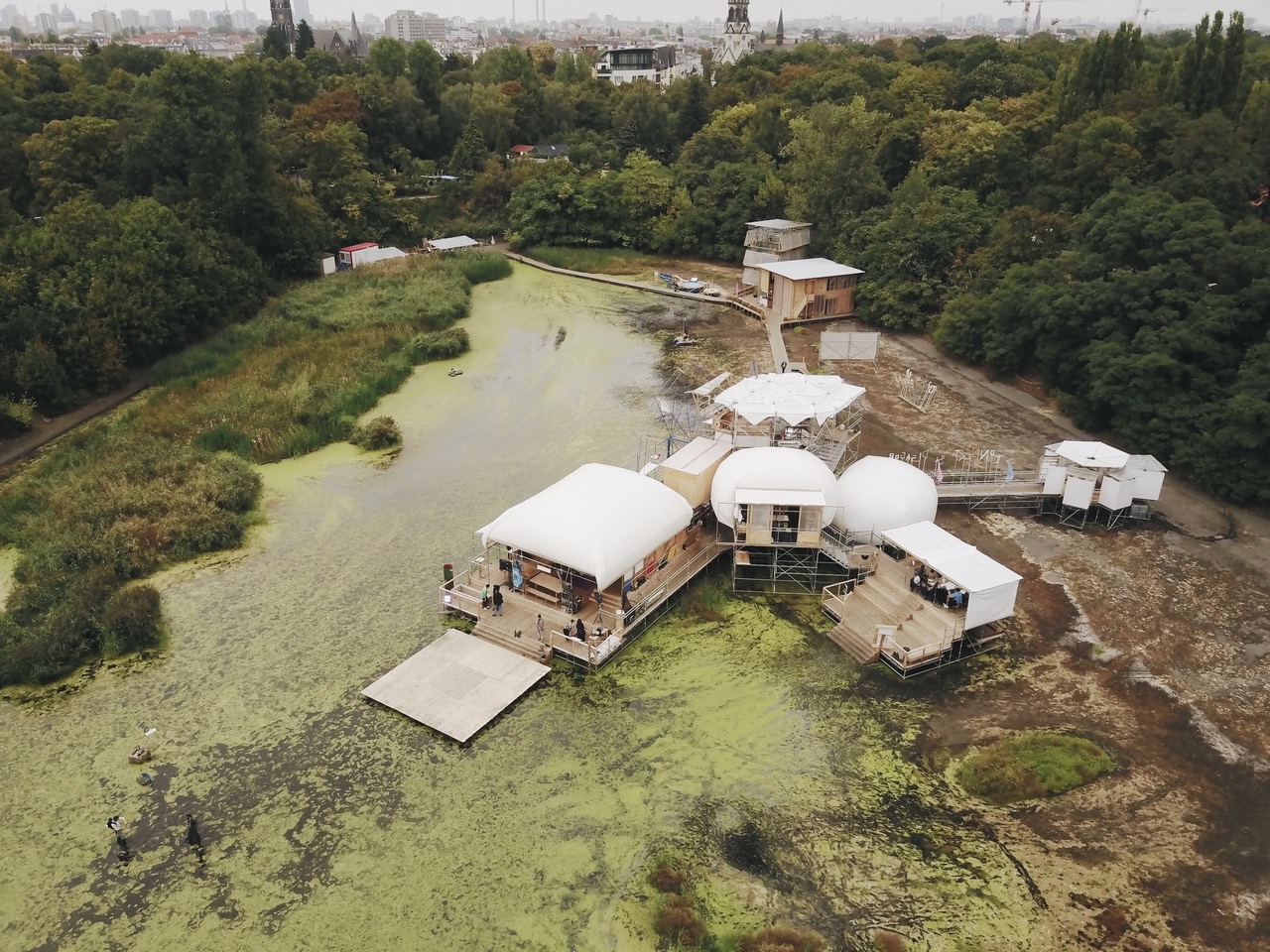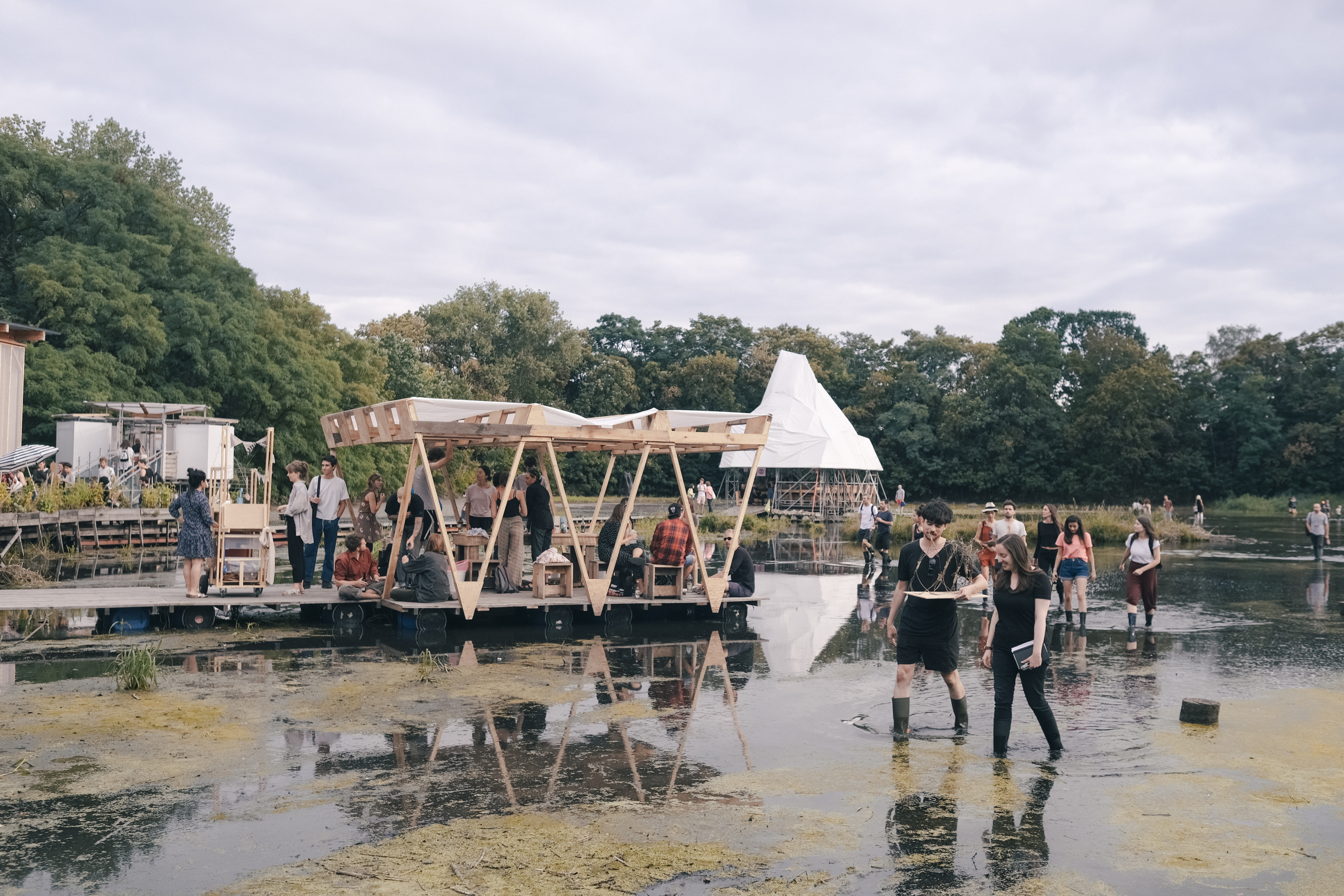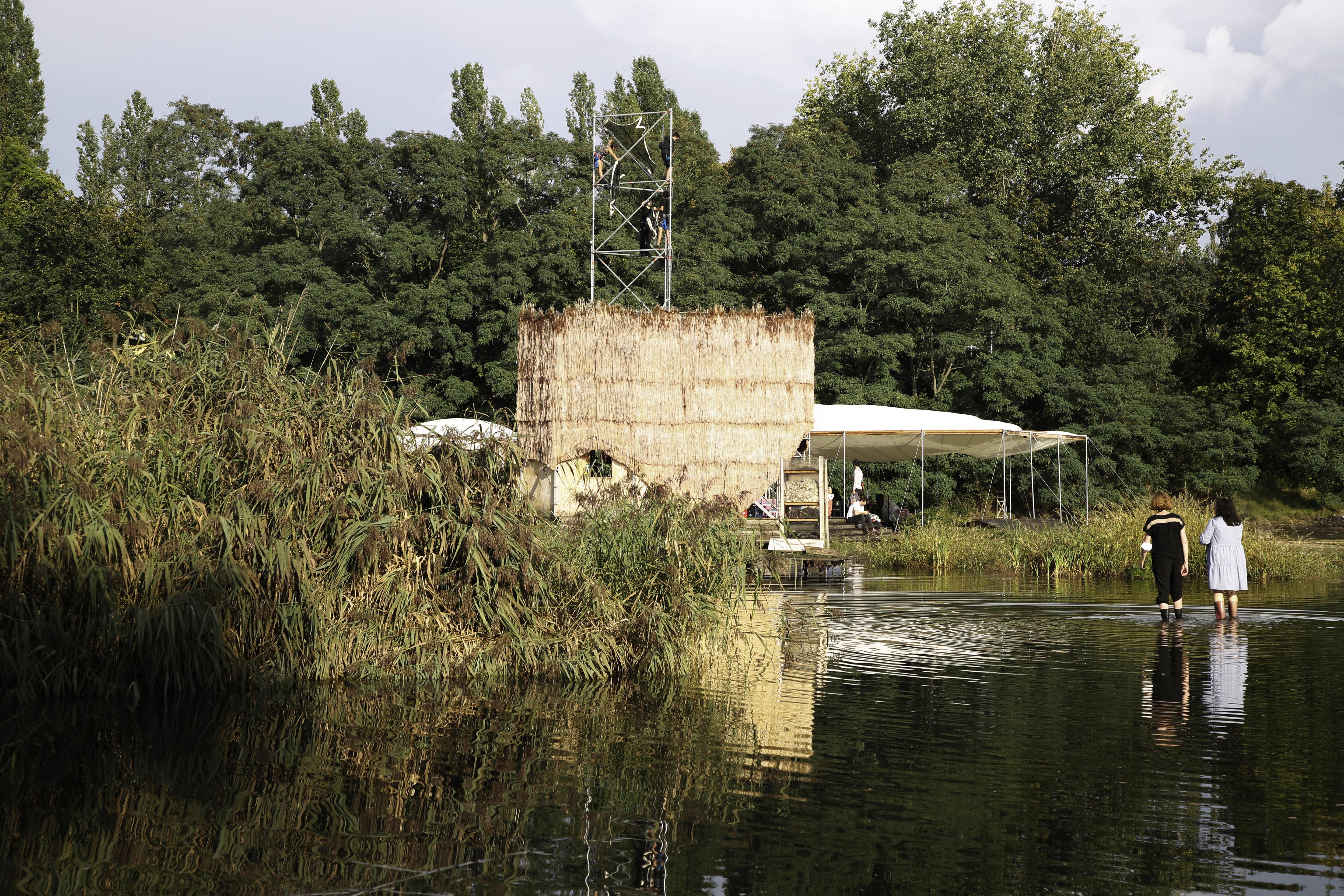Floating University Berlin is a place and a site, a project and an association.
I am part of it since 2021.
For this collective project, I work
as a association’s member, as a researcher, as an artist and designer, a workshop giver, as a programmer
and curator, as an educator, as a builder, as a host, ... But in this
project, I am also an inhabitant, part of a
community and protector of this site, where
a thriving wetland ecosystem has developed
on a rainwater retention pond in the middle
of Berlin. Both humans and more than
humans cohabitate, association members
and external visitors care for this precious
yet threatened urban laboratory. The self-
organization and collective processes are
every time challenged and reinvented, and
the language of practices is hard to define
because so plural, but our actions always
tend to be site-based, strongly ecological,
and inclusive, using hospitality, attention,
and care postures.
Here are some projects I am supporting in the association :
- I co-curated the festival Planetary Confluences in 2024
- I co-curated the Fluid Toxicity program with the Institute for Postnatural Studies in 2023.
- I was an invited artist as part of the Hybrid Gaze during Climate Care Festival 2023
- I was invited as an artist during Climate Care Festival, in 2021 to collectively conceive and build a Fog Catcher and in 2023 as part of the Hybrid Gaze.
- I co-curated the Kultursommer Days in 2021 (day of the frogs, day of the waste).
- I am also developing international cooperations within Floating University such as the Korail City of Culture program with Bangladeshi partners (Goethe Institute Dhaka and Paraa) and the Designing with the Planet project, part of South Design (with sister sites in São Paulo and Jakarta).
In general in the association, I am active in different working groups such as the communication group, the funding group, the program group, the hybrid infrastructures research group and the space group.
 Floating University, Spatial experiments 2018, © raumlaborberlin, Alexander Stumm
Floating University, Spatial experiments 2018, © raumlaborberlin, Alexander Stumm  Floating University, Spatial experiments 2019, © Floating e.V., Climate Care Festival, Lena Giovanezzi
Floating University, Spatial experiments 2019, © Floating e.V., Climate Care Festival, Lena Giovanezzi 
Floating University, Spatial experiments 2021, © Floating e.V., Climate Care, Constanze Flamme
More about the project:
Floating e.V. is a self organised group, where practitioners from a wide range of backgrounds meet to collaborate, co-create and imaginatively work towards more equitable and inclusive futures.
It is in solidarity with the history of the site and with the lineage of alternative narratives for urban development that Floating e.V. situates its mission: to open, maintain, and take care of this unique site while bringing non-disciplinary, radical, and collaborative programs to the public. In other words, it is a place to learn to engage, to embrace the complexity and navigate the entanglements of the world, to imagine and create different forms of living.
Floating e.V. is organized in working groups that are mandated by the association to work on specific tasks and topics driven by interest and desires - from maintaining and developing the site to gardening, cultivating collaborations, curating festivals and taking care of neighborhood connections. Floating e.V also meets monthly throughout the year for the association’s general assembly. In 2023, the association counts 60 members, of which 29 members actively take part in the association’s work and decision-making processes.
More about the site:
On the site of Floating University, a diverse range of animals, plants and algae have taken root and given birth to a unique landscape: a man-made environment reclaimed by nature where polluted water coexists with the relatively new presence of the University, forming a natureculture (Haraway) or a third landscape (Clément).
The site was designed in the early 1930s as a rainwater retention basin to serve the Tempelhof airfield and adjacent avenues, and it remains today as a fully functioning infrastructure. It is surrounded by allotment gardens and is therefore almost invisible to passers-by. The allotment garden was introduced in Germany during the 19th century as a means of enabling the new urban poor, who had been dispossessed of their land, to grow their own food within the city.
After the Tempelhof airport closed down in 2008, the city’s redevelopment plan proposed to relocate the basin as a pond situated within the 300 hectares of remaining parkland known as the Tempelhofer Feld. This would have transformed the 22500 m2 area of public land occupied by the basin into a valuable, profitable asset for Berlin’s real estate portfolio. However, in the Tempelhof referendum of 2014, Berliners voted against this plan and prevented any kind of construction on the airfield. The result of this referendum not only protected the unique inner-city green space of the airfield, but also provided protection for the basin and its unique biodiversity.
The basin plot was closed off to the public for over 80 years, and when Berlin-based architecture collective raumlabor opened up the site in 2018, they established a temporary urban laboratory for collective learning and practice. Situating a pedagogical experiment in this location was a deliberate form of political engagement.
Since 2018 Floating University continues to grow into a site where heterogeneous interests translate into projects, interventions, events and installations. Becoming Floating University is a constant process of searching, discovering, figuring out and paying knowledge forward.
Discover the rest of Floating’s work here :

© photo credits : floating e.V - Alexander Stumm, Lena Giovanezzi, Constanze Flamme
texts credits (about): Floating e.V. presskit 2024
